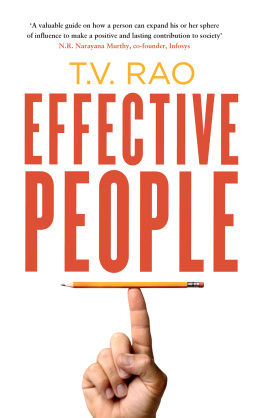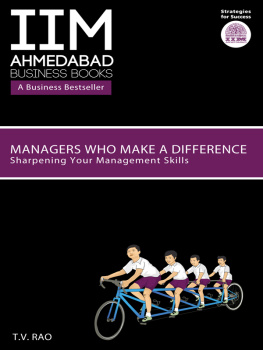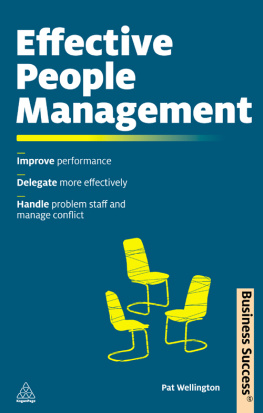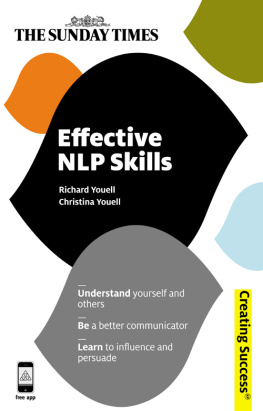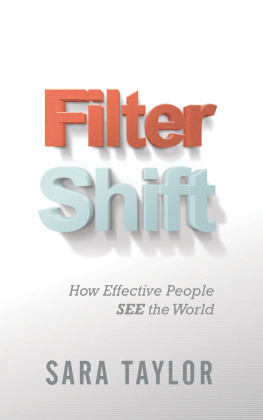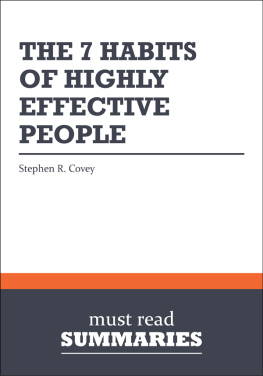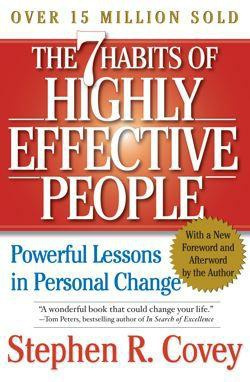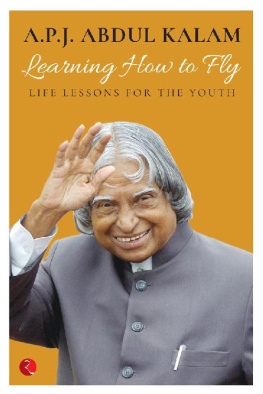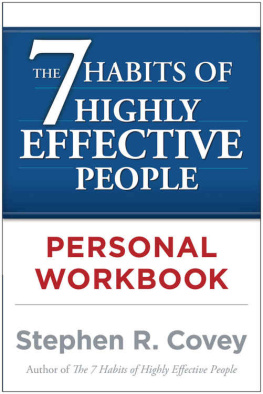Dr T.V. Rao is considered to be the father of HRD in India. He is a teacher, social entrepreneur and institution builder. Born in rural India, he was brought up by his mother and grandparents. He got a degree in BSc from Andhra Loyola College; BEd from Regional College of Education, Mysore; MA in psychology from Osmania University; and PhD from Sardar Patel University. He is associated with pioneering the departments of psychology at the Andhra and Udaipur universities and the Education and Training Department at the National Institute of Health Administration and Education, New Delhi. He joined Indian Institute of Management (IIMA) in 1973 and taught until 1994 as a full-time professor and subsequently as a visiting/adjunct professor until 2014. He is currently a member of the IIMA Society and on the board of governors of the institute. Dr Rao founded the National HRD Network and the Academy of HRD, both renowned institutions in HRD. He has authored around sixty books including Managers Who Make a Difference published by Random House. He has two daughters and a son and lives in Ahmedabad with his wife and son.
1
Introduction
Rev. Fr Douglas Gordon was the principal of Andhra Loyola College, Vijayawada, in the late fifties and early sixties. I graduated from the college (196165) with mathematics, physics and chemistry as my subjects. A tall and handsome priest of Irish origin, Fr Gordon had a very striking and pious personality. For some reason he was very fond of memaybe it was because he knew I was being brought up by my mother and grandparents (my father ran away, along with his riches, even before I was born). Or maybe he thought I was too young to be in collegeI was only fourteen when I joined the college to do my Pre-university course and eighteen when I graduated. Even though a year and a half was added to my registered age (a common practice in those days), I am sure he saw through that. Fr Gordon did not speak Telugu and I always had difficulty following his accented English but I had no trouble recognizing his affection. I graduated with decent marks, a second class, and wanted to do my masters in chemistry. As soon as the results were out, he sent me a postcard asking me to see him. I travelled sixteen kilometres from my village to meet my principal. I landed at his place and was shown details of an announcement from the Regional College of Education, Mysore (RCEM) for a one-year BEd programme with a stipend of Rs 75 a month. This programme was started in collaboration with the Ohio State University by the National Council of Educational Research and Training (NCERT). Fr Gordon said, You apply for this and if you get admission, study for a year. I will appoint you as a demonstrator in the chemistry laboratory when you return having completed the programme and while you are here you can apply for an MSc in chemistry as you are too young to do MSc now. I filled in the application and was later called for selection tests and an interview and got admitted in RCEM. I was again the youngest of the lot as almost all the rest of them who came there were already working as teachers and some of them were postgraduates.
Dr Prafullachandra N. Dave is a professor who came to RCEM that year. He had recently returned from St. Louis, USA, after studying there for a few years. We had many teachers who were educated abroad. Dr Dave taught us the paper on psychological foundations of education. He would get rats into the class and teach us how these animals could search and find food in a maze. He would also give us many psychological tests. I used to listen attentively and learn a lot and would constantly top in the psychology class. Once another professor, Dandapani, gave a test to our class and was amazed at my performance in that subject. I finished my one-year BEd and topped the RCEM science stream. When the results were declared I went to the college to collect my mark sheet and met Dr Dave. He asked me about my plans. I told him that there were already people from my neighbouring village coming to ask if I would teach in their school but that I would prefer to join Loyola College as a demonstrator in chemistry and apply for an MSc a year later. Dr Dave said that I should not be wasting my time and life in chemistry as I had a special aptitude for psychology. He suggested that I do my masters in psychology. In those days you needed to be a graduate in psychology even to apply for an MA in that subject. I told Dr Dave that no one would take me for an MA because I didnt have a bachelors degree in psychology. Dr Dave said he knew a psychology professor at Osmania University in Hyderabad and as RCEM is an experimental college with an unusual syllabus he might agree to treat it as an equivalent to a BA in psychology. He wrote a personal letter and told me to give it to the professor in Hyderabad.
Dr E.G. Parameswaran, EGP, a Tamilian, was then heading the department of psychology in Osmania University. He was a student of the famous psychologist G.D. Boaz from Madras and was specially brought in to start the psychology department. This department in those days functioned separately from the philosophy department. EGP looked more like a college student than a head of department. He admitted me without hesitation after reading Dr Daves letter. In the psychology department we were like a family and often visited EGP at his home, played with his children and with the children of other professors like Goverdhan Reddy, Tara Manohar Rao and Yadgiri Reddy. Shalini Bhogle, popular sports commentator Harsha Bhogles mother, was our senior at the university. I topped the university and even created a new record in those days. EGP was a great teacher who continues to inspire. Back then, he was offered positions by the Indian Institute of Management (IIM) Ahmedabad and Calcutta but he preferred to stay in Osmania and teach. He felt the IIMs were too commercial and not meant for good teachers who liked to get closely involved in their students lives. He encouraged me to apply for a PhD in the US and particularly to work with Dr Udai Pareek who was at that time in the University of North Carolina. While I was corresponding with Dr Pareek and others to try for an admission in the US, the Andhra University (AU) was on the verge of opening a department of psychology and parapsychology and was looking for lecturers. EGP suggested that I join AU to develop the department until I got a PhD admission; he wrote a letter of recommendation to Dr Ramakrishna Rao, RKR, who was heading psychology in AU at that time.
RKR offered me an assistant lectureship on an ad hoc basis without hesitation and said that he would get it regularized once the appointments were announced. He decided to pay me from his parapsychology fund until I was regularized. Parapsychology dealt with paranormal phenomena like telepathy and clairvoyance. RKR was the president of the International Parapsychological Association and was working very closely with the famous parapsychologist, J.B. Rhine. I registered for my PhD to work on dreams at AU with RKR as my guide. RKR even got special equipment shipped in from Germany to study dreams using tachistoscopic exposure of certain stimuli. He gave me all the freedom to design and start psychology MA courses in AU. Within six months of joining AU I came to know that Dr Udai Pareek was returning to India to work in Delhi. I decided to go to Delhi and work with Dr Pareek as I had my share of discomfort with parapsychology in which AU was beginning to specialize. Only a few months later I joined Dr Pareek at the National Institute of Health Administration and Education (NIHAE) in Delhi to work on an Indian Council of Medical Research (ICMR) project on the impact of teacher behaviour on student mental health.

